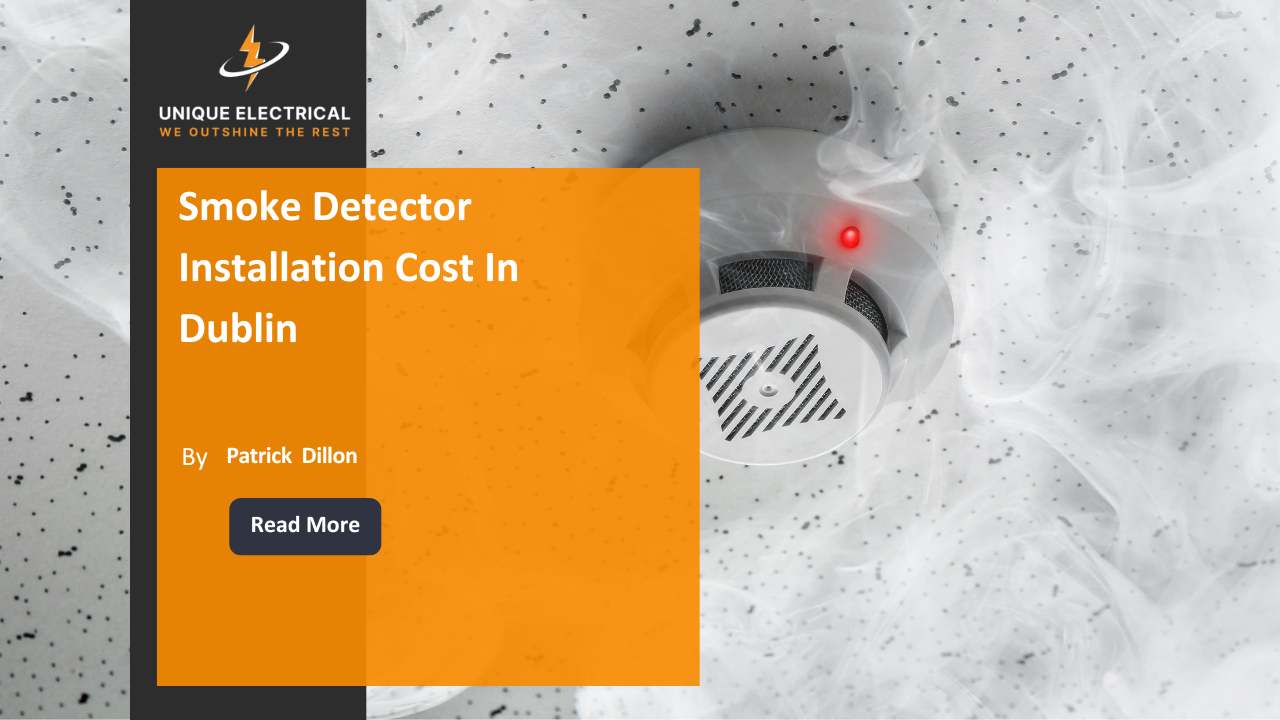Are you considering replacing your electrical sockets and wondering about the costs? Electrical socket replacement is a crucial aspect of maintaining a safe and functional home.
Whether you're upgrading old sockets for better efficiency, adding more outlets for convenience, or addressing safety concerns, understanding the costs can help you plan your budget effectively.
In this blog, we'll explore the various factors that influence the cost of electrical socket replacement in Ireland, from the type of socket and labour charges to additional expenses that might arise.
How Much Does Socket Replacement Typically Cost?
The cost of replacing a single standard electrical socket in Ireland typically ranges from €50 to €80, including labour and materials. However, the price can increase if you opt for specialised sockets, such as USB-integrated or smart sockets, which can range from €80 to €150 each. These figures are approximate and can vary based on the specific requirements of your project and the electrician’s rates.
For larger projects involving multiple sockets, you might find that some electricians offer package deals or discounted rates. For example, replacing five standard sockets might cost between €200 and €350. It's always a good idea to get multiple quotes to ensure you're getting the best value for your money.
What Factors Affect Socket Replacement Costs in Ireland?
The factors that influence socket replacement costs can help you budget effectively. Let's explore these factors, examining everything from the type of socket to labour charges.
Type of Socket
The type of socket you choose significantly impacts the replacement cost. Standard sockets are typically less expensive compared to specialised ones, such as USB-integrated or smart sockets. While standard sockets might cost less, opting for advanced options can enhance convenience and future-proof your home against evolving technology needs.
Additionally, some sockets may require specific installation techniques or additional components, which can increase the overall expense. When planning your budget, consider whether the extra features justify the additional cost, especially in terms of long-term utility and convenience.
Number of Sockets
The number of sockets being replaced plays a crucial role in determining the total cost. Replacing multiple sockets in one go can sometimes lead to a discount on labour charges, as the electrician can complete the work more efficiently. However, each additional socket adds to the material costs and might require more time, slightly increasing the overall expense.
It’s also worth considering future needs when deciding how many sockets to replace. Planning for additional sockets now can prevent the need for another service call in the future, potentially saving money in the long run.
Labour Charges
Labour charges vary based on the complexity of the job and the electrician’s expertise. Simple replacements in easily accessible areas may incur lower costs, while installations in difficult-to-reach locations or those requiring extensive rewiring can be more expensive. Electricians typically charge by the hour, so the duration of the job will directly affect the total cost.
To get the best value, it’s advisable to request quotes from multiple electricians and compare their rates and experience. Hiring a reputable professional ensures the job is done safely and efficiently, which can save you money on potential future repairs.
Additional Repairs or Upgrades
Sometimes, replacing sockets might reveal underlying electrical issues that need addressing. Upgrading wiring or repairing damaged circuits can increase the overall cost. It’s essential to factor in these potential additional expenses when planning your budget.
Addressing these issues during socket replacement ensures your electrical system is up-to-date and reduces the risk of future problems. While this may increase the initial cost, it can prevent more significant, costly repairs down the line.
Quality of Materials
The quality of materials used can also affect the replacement cost. Higher-quality sockets and components are typically more expensive but offer better durability and performance. Investing in premium materials can ensure a longer lifespan and reduce the need for future replacements.
On the other hand, opting for cheaper materials might save money initially but could lead to frequent repairs or replacements. It’s crucial to balance cost with quality to ensure safety and long-term value.
What Are the Costs of Replacing Different Types of Sockets?
Below is a table determining the average costs for replacing different types of sockets in Ireland:
These costs are approximate and can vary based on the electrician's rates and specific project requirements. Be sure to discuss your needs and get detailed quotes to understand the full scope of the expenses.
Conclusion
The cost of replacing electrical sockets in Ireland depends on various factors, including the type of socket, the number of sockets, labour charges, and potential additional repairs. Understanding these factors and typical costs can help you budget effectively.
If you're considering socket replacement, trust the professionals at Unique Electrical. With their expertise and commitment to quality, you can ensure a safe and efficient upgrade for your home. Contact Unique Electrical today for a free quote and experience top-notch service for all your electrical needs.












